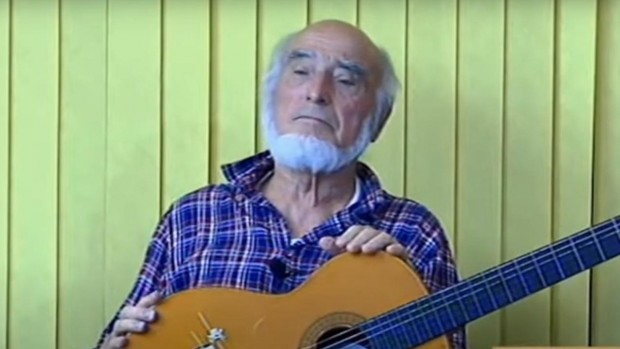Which of the three missions in Afghanistan was the most difficult for you?
The most dangerous enemy was my last mission in Vardak Province, where I served on the OMLT advisory team, which also escorted Afghan troops directly into sharp operations. We not only taught them to shoot, carry a weapon and follow a routine, but we also accompanied them to shooting operations.
–
It was a sad sight as their command took care of its soldiers in the field
—
Did you also have to get involved in the fighting?
Of course, when I felt I was in danger, I used a weapon.
–
We did not have the competence to command them because it was their war and they had their commanders. But we helped them make decisions.
–
How often have you gotten into a conflict?
Sometimes several times a day. It was the most dangerous in the vehicles, the safer patrols were much safer.
–
How come you’re more protected in an armored car?
When you walk, you are a hunter, when you drive, you are a game. The vehicle will only pass somewhere, but the infantry will pass everywhere.
–
The enemy is not stupid, he knows the terrain, he has experience and he knows very well that our cars will only pass somewhere. But we never underestimated the enemy. Of course we had Mrap MaxxPro armored cars or our Iveca. But we tried to use them only in the most urgent cases, so that we were as unpredictable as possible for the enemy.
–
In addition, the Afghan partners only had light vehicles that would not protect them against explosions in booby-trapped systems, so we tried to make mainly patrol patrols out of solidarity. We were also closer to the locals, which could sometimes help.
–
Did you have any dead in action?
None of ours or Afghan. But we had some wounded Afghan soldiers.
–
At what level were the Afghan soldiers?
At very basic. But there were also people who had experience from the war with the Soviet Union and also from the civil war. But mostly they were boys from a rural environment, without any military experience and, of course, illiterate.
–
How did it affect you that the Afghan army surrendered to the Taliban so quickly?
Unfortunately, the collapse of the Afghan army did not surprise me. I’m saying unfortunately, because we put some energy into it and we had some expectations. But when we saw how the higher levels of the Afghan army approached it and how they took care of the soldiers in the field, it was a sad sight. We made friendly relations with the boys and it was sad to see that they froze in the tent because they didn’t have wood that someone on the higher levels had stolen.
–
It probably won’t add to the team’s morale.
Certainly. Soldiers were often uneducated. Their world was narrowed down to their village and valley, and for the first time they got further into the world. They most often did this only to have better living conditions than they had previously received in the field. But I expected a greater degree of loyalty to the state from soldiers at higher levels. They always thought mainly of themselves and their family – which was characteristic of the whole of Afghanistan – and the state was somewhere in the background.
–
Among the American and British veterans of the Afghan war, the rapid departure provoked a wave of indignation, as the victims and injuries of their friends lost their meaning significantly. Do you have a similar feeling?
I understand their attitude, because I am from the paratroopers from Chrudim and we probably took it the most. But I don’t feel that way. We were committed to a task, and I think we did it. How it turned out in general, however, is no longer a matter for the soldiers.
–
Don’t you have a hangover?
I do not feel any frustration because I went through a training mission and saw how the funds that the international community had invested in Afghanistan were being handled there. It bothered me that no one told them: No! At the same time, they received perfect equipment, they often had better equipment than the Czech army in general had at home.
–
And yet the enemy defeated them, even though he had worse equipment. As?
They certainly had a unifying element. Their logistical support was almost non-existent, but even then they were able to deal with it and they did not mind that it was cold or bad weather, and at the same time they were able to attack and cause damage and affect the population.
–
What was your strongest experience?
Hard to say. For example, we got into a trap where the insurgents surrounded us around 360 degrees. That was military nonsense, because the enemy was shooting at us through himself. We originally expected to be out for four hours, but in the end we were there for twenty hours.
–
Have you ever felt like you couldn’t get away with it?
Never. When our Afghan partners wanted to drag us into something dangerous out of ignorance, we told them that we were not going to do it for these and those reasons, because we have a responsibility for our people, and we advised them not to go either. And that’s how it worked.
—


